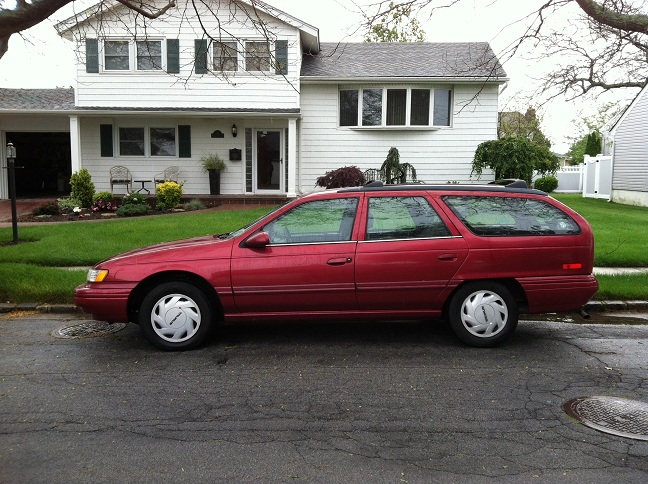Car Donations – Under the Right Condition, What’s Old is New Again
One activity that ranks very low on my list of “fun things to do” is the selling or trading in of an automobile. More likely than not, that explains why I tend to keep cars for many, many years. I’ll never forget a recent trip to a new car showroom – the salesman used the detached bumper from our old jalopy as a visual aid to explain why our trade-in allowance was so low! Anyway, last week, I think we set actually set our own personal automobile longevity record when we finally disposed of our 1995 Ford Taurus station wagon. Yes, the car was a bit “out of style” and, yes, the interior was a bit shopworn, but given that it had over 105,000 miles on it, it was truly in great condition. The engine ran well, the transmission was recently rebuilt, and the tires were fairly new. But, despite the tender memories attached to this vehicle, it was time for us – and it – to move on.
Given my aversion to selling automobiles, particularly ones that are approaching 17 years of age, I needed to find a more viable alternative for disposing of this car. Trade-in? Perhaps, but I was really too embarrassed from the prior “detached bumper” incident. Leave it parked on the side of the road in a bad neighborhood with the keys in the ignition and the engine running? Too “Seinfeldian.” Hey – how about donating it to charity? We hear ads on the radio all the time for such donations, and this car, while not a cream puff, could certainly find a good home this way while possibly providing us with a tax deduction along the way.
A car donation can make sense, and it certainly did in this instance, but like everything else in the tax world, you have to make sure you follow the rules and that you are reasonable with your valuation. Understand that automobile deductions were a highly abused area until a few years ago when the IRS sensibly tightened the rules. Gone are the days when taxpayers could claim a healthy (read: inflated) deduction for the donation of a trashed out Yugo with no tires and a rubber band for an engine to a sketchy charity that would then sell the vehicle for scrap. As well those days should be gone.
Here are the planning takeaways:
- The value of the car (or boat or plane or other vehicle) will be based on its fair market value (FMV), that is, the amount that would result in a transaction between a buyer and a seller, neither of which has a gun to his/her head to complete the transaction. If that value is $5,000 or greater, you will need a written appraisal from a qualified appraiser to substantiate the value. But read on….
- This theoretical FMV will only be available to you if the charity actually uses the vehicle in the furtherance of its charitable mission. If the charity sells the vehicle “without significant intervening use or material improvement” the value of the deduction on your tax return will be limited to the gross proceeds of that sale – and the charity will have to advise you and the IRS of that amount.
- In addition, if the value of the automobile exceeds $500 at the time of contribution, the charity is required to provide you with form 1098-C acknowledging receipt and certifying their use or sale of the vehicle. Note however, that the charity does not value the car for you – that is your responsibility.
- Finally, if the charity sells the vehicle to a needy individual at a price significantly below fair market value or gratuitously transfers the vehicle, you will only be able to claim the fair market value if the sale or transfer furthers the charity’s mission.
In the right situation, the donation of a vehicle can be a great thing. Just remember that you do not get something for nothing. You may think the car is worth $4,500 but if the charity only clears $300 for scrap metal, your deduction will be adjusted accordingly. And, in any case, your tax savings will equate to only a fraction of what you could get if you sold the car in the open market.
 Oh, the ending of our personal story? Well, the old Ford was gifted to New Ground, a local Long Island charity committed to educating and empowering families and Veterans caught in the web of homelessness. Their goal is nothing less than the truly independent functioning of their clients for generations to come. Since Long Island is not a particularly mass-transit friendly area (except perhaps for the LIRR and a couple of bus lines), commutation ends up being a major hurdle for families of modest means. It is our hope that this vehicle will make life a little bit easier for one of these families. If so, then this transaction will have been a home run for everyone.
Oh, the ending of our personal story? Well, the old Ford was gifted to New Ground, a local Long Island charity committed to educating and empowering families and Veterans caught in the web of homelessness. Their goal is nothing less than the truly independent functioning of their clients for generations to come. Since Long Island is not a particularly mass-transit friendly area (except perhaps for the LIRR and a couple of bus lines), commutation ends up being a major hurdle for families of modest means. It is our hope that this vehicle will make life a little bit easier for one of these families. If so, then this transaction will have been a home run for everyone.


